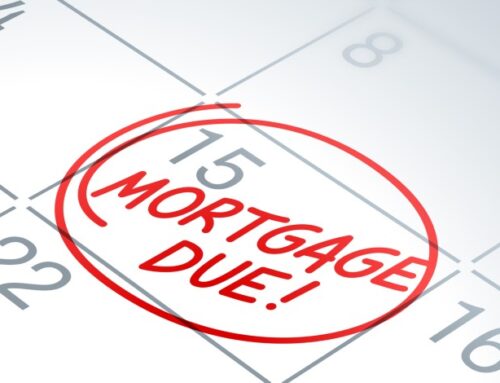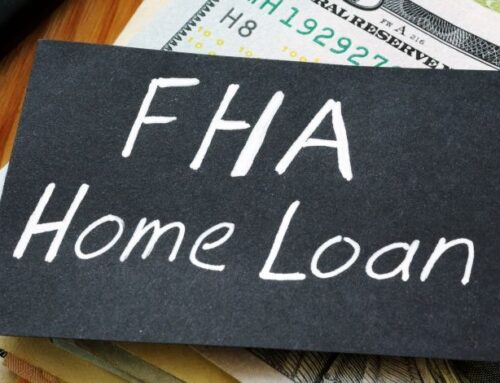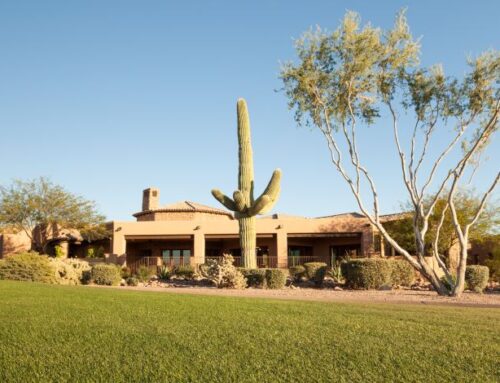If you want to purchase a home in Arizona, foreclosed homes may provide a cheaper way to get the home you want. When a home is foreclosed, the previous owner couldn’t meet their mortgage terms. The lender has taken ownership of the property and likely wants to sell it quickly to move the asset.
Since the lender sells foreclosure homes, you can typically purchase them for less money compared to similar homes in the area. There are pros and cons to buying a foreclosed home in Arizona. While the price tag may be lower, there may also be more issues with the house, such as the need to make repairs.
When considering buying a home, read on to learn how to buy foreclosed homes in Arizona so you understand whether this option makes sense for you.
Understanding Foreclosed Homes In Arizona
Foreclosed homes have been seized by the lender due to the previous homeowner failing to make their mortgage payments. When a lender gives a homeowner a loan to buy a home, the home is used as collateral if the homeowner defaults on their payments.
Once the lender owns the home, they’ll attempt to sell the house to recover their money. The first attempt to sell a foreclosed home is typically through a public auction, then through a real estate agent if the home doesn’t sell at auction.
The stages of foreclosure in Arizona
There are a few stages of foreclosure to be aware of since each one can affect a homebuyer differently. They include:
- Pre-foreclosure: Before foreclosure occurs, the lender will typically notify the homeowner of their late mortgage payments. The homeowner may have time to make up delinquent payments before the lender seizes the home. Depending on the terms of a mortgage, a home may enter foreclosure after a certain amount of time, such as several months of missed payments. When the home’s in the pre-foreclosure stage, the homeowner may be very motivated to sell quickly, which could benefit prospective homebuyers. If you purchase a home during pre-foreclosure, you could also avoid competing with other buyers at an auction.
- Public auction/trustee’s sale: Once the home is in foreclosure and the lender has seized ownership, the lender will make a public notice of trustee’s sale that notifies the county and surrounding community the home will be sold at a public auction on the day/time and at the place state statutes require. At this stage, the home is considered “bank-owned,” meaning the lender coordinates the auction sale.
- Real estate-owned (REO): If the home fails to sell at a public auction, the lender will attempt to sell the home through a realtor. The realtor works on behalf of the lender, and the home sale process is similar to non-foreclosure home sales.
While the home prices for foreclosed homes will often be lower compared to similar homes in the same area, homebuyers should keep in mind many foreclosed homes are sold “as-is.” That means the lender won’t pay for repairs. A homeowner facing foreclosure may neglect upkeep for their home until they leave, so that’s something to consider when buying a foreclosed home.
How To Buy Foreclosed Homes In Arizona
You can find foreclosed homes for sale, among other home listings, online or through your real estate agent. You can also check local news publications, which publish notices of foreclosed homes that will be available at public auction.
When you identify a property you’re interested in, you’ll complete the following steps to buy a foreclosed home in Arizona.
Step 1: Understand the options for buying a foreclosed home
Depending on where the home is in the foreclosure process, you can purchase it from the owner, at auction or through an REO realtor.
Purchasing through a short sale
The term “short sale” refers to a home sale where the homeowner sells their home for less than what they owe their lender. The homeowner still owns the house in a short sale, so you’ll work with their realtor to buy the home. The current homeowner’s lender must approve the home purchase since you’re purchasing the home for less than what remains on their mortgage balance.
A short sale can save you money, but it can also be a lengthy process because more approvals are required. There’s also the risk of a deal falling through, such as if the homeowner’s financial status changes and they can stay home.
Lenders consider short sales because moving a home into foreclosure can be costly for the lender. Completing a short sale can take several months and poses some risk, so consider how it affects your homebuying timeline.
Purchasing at auction
If you’re interested in purchasing a foreclosed home at auction, you’ll first want to research the purchase terms. Contact the lender’s representative (trustee, attorney, etc.) to learn what you need to purchase the property at an auction.
Some auction sales will require all-cash payments or an earnest money deposit. You’ll also want to have your attorney review a copy of the purchase agreement so you can attempt to negotiate any changes in advance.
If you can inspect the property before the auction, that can help you during the decision-making process for how much you’ll want to bid. When you purchase a home at auction, you buy it as-is, so knowing what you’re buying in advance and what repairs you’ll need to make can help.
If you can get financing to purchase a home at auction, you’ll want to bring an initial mortgage approval. Once you’re at the auction, know the highest bid amount you’re willing to go up to. If you’re the highest bidder, you’ll submit your earnest money deposit and sign the purchase agreement.
Purchasing from a lender
When a foreclosed home fails to sell at auction and moves to the REO stage, you’ll work with the lender’s real estate agent to buy the home. Foreclosed homes in this stage are still typically sold as-is, just like in an auction, but you may be able to tour the house and order an inspection before closing.
Step 2: Finding foreclosed homes for sale
You can find foreclosed homes for sale by searching home listings online or working with a real estate agent who has access to listings in the area you’re interested in.
You can also look for foreclosure auction notices in your local newspaper. Some physical signposts on for-sale homes include a “Bank Owned” sign or something similar displayed on the property.
Step 3: Get preapproved for a mortgage
Unless you intend to buy a home with all cash, you’ll likely need a mortgage to purchase a foreclosed home. Mortgage preapproval helps you understand how much home you can afford, which lets you streamline your search and helps your real estate agent find better options.
You can lock in an interest rate with preapproval, too, plus get a preapproval letter that shows the lender you’ll be able to afford the foreclosed home you’re interested in.
Step 4: Get an appraisal and inspection
If you can, get a home appraisal and inspection to better understand how much the home is worth and what type of repairs you’ll need to make when you buy a foreclosed home. If you want a mortgage from a lender, they’ll typically require an appraisal before offering you a mortgage.
If you cannot get an appraisal and inspection before you buy, you’ll want to ensure you’re comfortable being responsible for any repairs on the foreclosed home.
Step 5: Purchase the home
Once you have a real estate agent and are confident in the home you want to purchase, you can make an offer. This might occur at an auction or by working with the lender’s REO agent.
If your offer’s accepted, you can finalize your mortgage terms if you use a mortgage to purchase the home. You’ll then go through the closing process of completing all paperwork and paying closing costs before you get the keys to your new home. You’ll also want to get homeowners insurance before you move in.
Advantages Of Buying A Foreclosed Home In Arizona
Foreclosed homes can be attractive, depending on what you’re looking for when shopping. Some advantages include:
- Foreclosed homes are typically less expensive than similar homes in the same area.
- Foreclosure auction processes are simple. The highest bidder gets the home, saving you time in the homebuying process.
- Lenders likely want to move the property quickly, which could result in a shorter homebuying process.
- You may have traditional loan options available to you when you’re buying a foreclosed home.
Disadvantages Of Buying A Foreclosed Home In Arizona
Foreclosed home sales can be cheaper and quicker but may pose more risks. Consider these potential pitfalls when buying a foreclosed home.
- Foreclosed homes may be in poor condition, depending on how the previous homeowner maintained them.
- The homebuyer will be responsible for all necessary repairs and renovations in as-is sales.
- When foreclosed homes sit empty, they risk being used by squatters or vandalized or damaged due to neglect.
- Foreclosed home sales may require all-cash purchasing.
Obtain A Preapproval From Arizona Central Credit Union
Whenever you’re in the market to purchase any home, getting preapproved for a mortgage is helpful. If you’ll need to borrow money to buy a home, preapproval shows you how much home you can afford and shows sellers you’re serious. You can use a preapproval letter as evidence you’re capable of making mortgage payments, which can help increase your likelihood of being the chosen buyer.
Foreclosed homes may make sense for your unique homebuying situation. It’s helpful to do lots of research on the property and buying stipulations to make a comfortable decision.
To learn more about your options, see what Arizona mortgages are available from Arizona Central Credit Union. Contact a mortgage specialist to speak with an expert.




